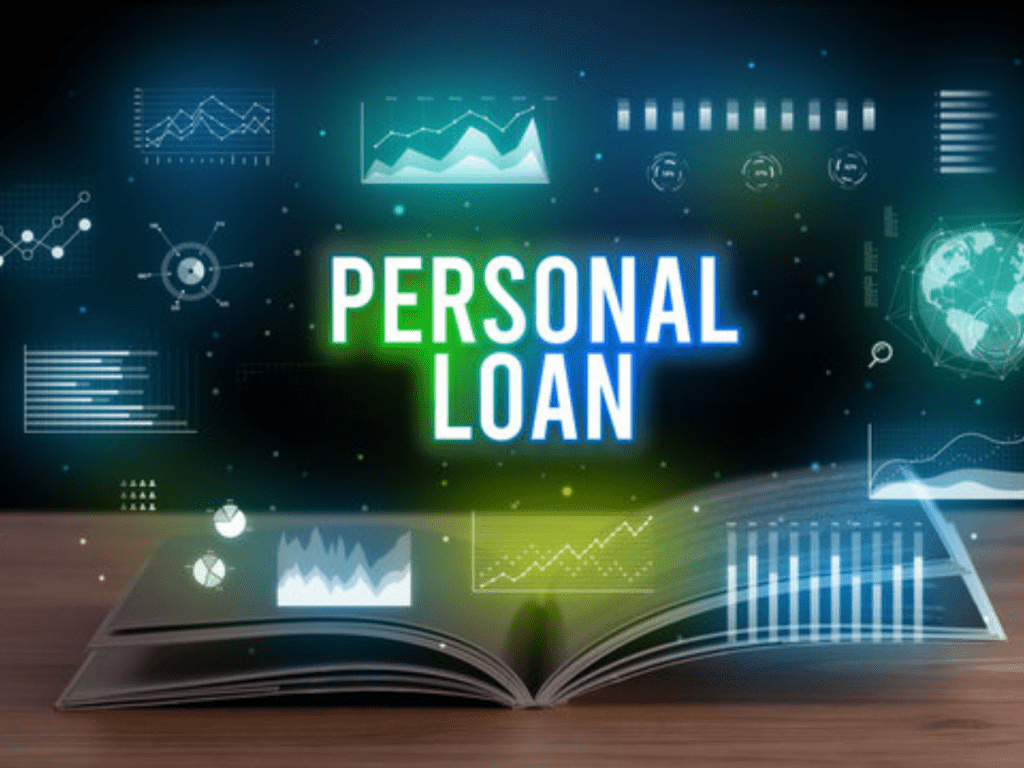Introduction
Securing the best interest rate on a personal loan is one of the most crucial steps in minimizing the overall cost of borrowing. The interest rate directly affects the total amount you’ll pay back over the life of the loan, and even a small difference can have a significant impact. Understanding how to secure the best interest rate can help you save money, reduce financial stress, and ensure you’re getting the best deal possible. In this guide, we will cover a range of factors that influence interest rates, strategies to secure a lower rate, and tips on making yourself a more attractive borrower.
1. Understand the Basics of Personal Loan Interest Rates
Interest rates on personal loans can vary widely depending on a number of factors, such as the lender, the type of loan, and your financial profile. Personal loans typically have fixed or variable interest rates. A fixed-rate personal loan means that your interest rate remains the same for the entire term of the loan, while a variable rate may change over time, often in accordance with market conditions.
In general, the interest rate for personal loans ranges between 5% and 36%, though some borrowers might qualify for rates outside of this range depending on their creditworthiness and the lender’s terms.
2. Know What Affects Your Interest Rate
Several key factors determine the interest rate you’re offered on a personal loan. Understanding these factors can help you better prepare and position yourself for the best possible rate.
Credit Score
One of the most important factors affecting your personal loan interest rate is your credit score. Lenders use your credit score to assess your risk as a borrower. Generally, the higher your credit score, the lower the interest rate you’ll receive. A good credit score demonstrates that you have a history of paying off debts responsibly, which makes you less of a risk for lenders.
- Excellent (750+): Typically receives the best rates, often ranging from 5% to 8%.
- Good (700-749): Still eligible for relatively low rates, generally around 8% to 12%.
- Fair (650-699): Rates could range from 12% to 20%, depending on the lender.
- Poor (below 650): You may face high-interest rates, often upwards of 20%, or may not qualify for a loan at all.
If your credit score is less than ideal, consider working on improving it before applying for a loan. Steps like paying down existing debt, disputing any inaccuracies on your credit report, and making sure your bills are paid on time can help boost your score over time.
Income and Employment Status
Your income level and employment history play a crucial role in determining your interest rate. Lenders want to be sure that you can afford the loan payments. A steady, reliable source of income indicates that you have the financial means to repay the loan.
Lenders typically look for:
- A stable employment history
- A consistent income level, preferably from a full-time job or a long-term contract
- An income that is high enough to comfortably cover your loan payments, along with your other monthly expenses
If you are self-employed or have an irregular income stream, you may face higher interest rates. However, you can still improve your chances by providing clear evidence of your income, such as tax returns or bank statements.
Debt-to-Income (DTI) Ratio
Lenders often use the debt-to-income ratio (DTI) to assess how much debt you already have in relation to your income. A high DTI can signal that you may struggle to repay additional loans, which could result in higher interest rates.
A DTI ratio of 36% or lower is considered ideal. If your DTI is above this, you may be considered a riskier borrower. Reducing existing debt can help lower your DTI and increase your chances of securing a lower interest rate.
Loan Term and Amount
The length of the loan and the amount you borrow can also influence your interest rate. In general, shorter loan terms tend to come with lower interest rates because the lender’s risk is reduced. A longer loan term means more interest payments over time, which could result in a higher rate.
Additionally, the amount of money you borrow plays a role. Smaller loan amounts may come with higher rates because the lender’s potential profit is lower, while larger loans might come with slightly lower rates due to the larger balance.
3. Shop Around for the Best Rate
One of the most effective strategies for securing the best interest rate is to shop around with multiple lenders. Each lender has different criteria for determining rates, and the offers you receive can vary significantly. It’s important to compare rates from various sources, including:
- Traditional Banks: Banks may offer competitive rates, especially if you are an existing customer.
- Credit Unions: Credit unions often provide lower rates than traditional banks because they are nonprofit organizations.
- Online Lenders: Online lenders can be very competitive, often offering more flexible terms and lower rates due to lower overhead costs.
- Peer-to-Peer Lenders: Peer-to-peer platforms allow individuals to lend money to others, and rates can vary depending on your creditworthiness.
When comparing offers, make sure to look at the annual percentage rate (APR), which includes both the interest rate and any associated fees. Some lenders may offer lower rates but charge higher fees, which can ultimately make the loan more expensive.
4. Consider a Co-Signer
If you have a poor credit history or insufficient income, consider asking a family member or friend to co-sign the loan. A co-signer is someone who agrees to take on the responsibility of repaying the loan if you fail to do so.
Having a co-signer with a strong credit history can improve your chances of securing a lower interest rate, as the lender will take into account their creditworthiness in addition to yours. However, it’s important to understand the risks involved, as a co-signer is legally responsible for repaying the loan if you default.
5. Improve Your Credit Score
As mentioned earlier, your credit score is one of the primary factors affecting the interest rate you’ll receive. If your credit score is not in the best shape, you can take several steps to improve it before applying for a loan.
- Pay your bills on time: Your payment history makes up a large portion of your credit score. Make sure you pay all your bills on time, including credit cards, loans, and utilities.
- Reduce credit card balances: High credit card balances can hurt your credit score and increase your DTI. Try to pay down balances to reduce your overall debt.
- Avoid opening new credit accounts: Opening new credit accounts shortly before applying for a loan can lower your credit score. Limit new credit inquiries during this time.
- Dispute errors on your credit report: Review your credit report for any inaccuracies or errors, and dispute them with the credit bureaus. Correcting errors can result in an immediate boost to your credit score.
Improving your credit score can take time, but the effort will pay off in the form of lower interest rates on loans.
6. Consider Loan Secured by Collateral
If you’re willing to pledge an asset, such as a car or home, as collateral, you may qualify for a secured personal loan with a lower interest rate. Collateral reduces the lender’s risk, as they can seize the asset if you default on the loan.
Secured loans typically come with lower rates because the lender has a form of protection in case you are unable to repay. However, keep in mind that if you fail to repay the loan, you could lose the asset you’ve pledged as collateral.
7. Negotiate the Interest Rate
Some lenders may be open to negotiation, especially if you have a good relationship with them or if you’ve been a loyal customer. If you receive an offer with a higher interest rate than you expected, don’t hesitate to ask if there’s room for improvement.
You can also try negotiating by showing competing offers from other lenders. Lenders may be willing to match or beat a competitor’s rate to win your business.
8. Avoid Prepayment Penalties
While securing a low-interest rate is important, it’s also crucial to check whether the loan includes any prepayment penalties. A prepayment penalty is a fee charged if you pay off the loan early. This can negate the benefits of securing a lower interest rate, so make sure to read the loan agreement carefully.
If prepayment penalties are included, consider whether it’s worth paying a slightly higher interest rate in exchange for the flexibility to pay off the loan early without penalties.
9. Understand the Full Loan Terms
When securing a personal loan, it’s essential to look beyond the interest rate. Review the full terms of the loan to ensure that there are no hidden fees, penalties, or unfavorable clauses. Some lenders may offer a low-interest rate but charge high origination fees, monthly maintenance fees, or other costs that can add up over time.
Make sure you understand the full cost of the loan, including:
- Origination fees
- Late payment fees
- Prepayment penalties
- Loan disbursement fees
The best loan is not just the one with the lowest interest rate but the one that provides the best overall value, considering all costs involved.
10. Maintain a Healthy Financial Profile
Even after securing the best interest rate on your loan, it’s important to maintain a healthy financial profile to ensure you can continue accessing favorable loan terms in the future. Keep your credit score high, manage your debt responsibly, and continue saving for emergencies. Having a strong financial profile will help you secure low-interest rates on future loans and improve your overall financial stability.
Conclusion
Securing the best interest rate on a personal loan is essential for reducing your borrowing costs and ensuring that the loan doesn’t become a financial burden. By understanding the factors that affect interest rates, shopping around for the best offers, improving your creditworthiness, and negotiating terms, you can significantly reduce the amount you pay for a personal loan. Whether you’re borrowing for a big life event, consolidating debt, or covering an emergency expense, following these strategies can help you secure a loan that fits both your financial needs and your budget.

